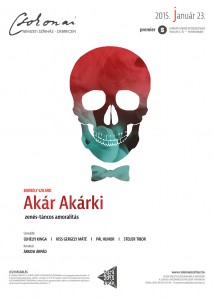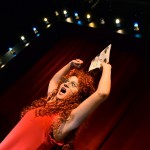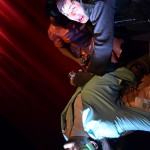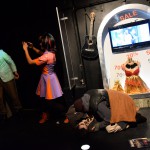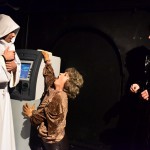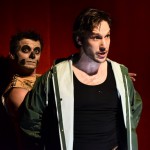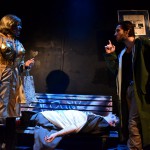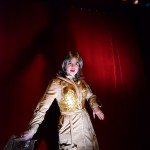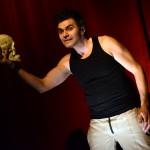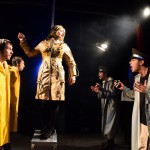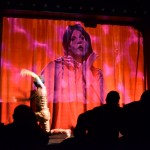Információk a Csokonai Fórum megközelíthetőségéről autósoknak,...
This dramatic text which is characterized by a very poetic language revitalizes the medieval tradition of morality plays. It holds before us a distorted mirror of the consumer society in crisis. Looking in this mirror we do not see ourselves, but we see Even Everyman, somebody from the crowd who, not having other choice, puts his own body on the market. The play reveals the ethical and moral crisis of the present age using the methodology of the Brechtian alienation.
„Its genre is defined as amorality which anticipates that faith in God, morality and solidarity disappeared already from these stories, from these lives and deaths. The obligatory facing of death, the confrontation with the stages of life were customary and even required in the old morality plays. Now all of this is forgotten. The people in these eight episodes which create a story bending back on itself, perish due to fatal coincidences or they perish by harsh executions. The dead are left on the side of the road like they were pieces of garbage. The ones who stay alive rob the dead people’s pockets or they cowardly get rid of the uncomfortable quarry, namely the corpses.” (Zsuzsa Radnóti)
„Nem csupán kihívás, megtiszteltetés is egyben” − villáminterjú Újhelyi Kingával
„Van még dolgunk egymással” − interjú Árkosi Árpáddal
Kutszegi Csaba: Brecht, Borbély és a zenés-táncos amoralitás





